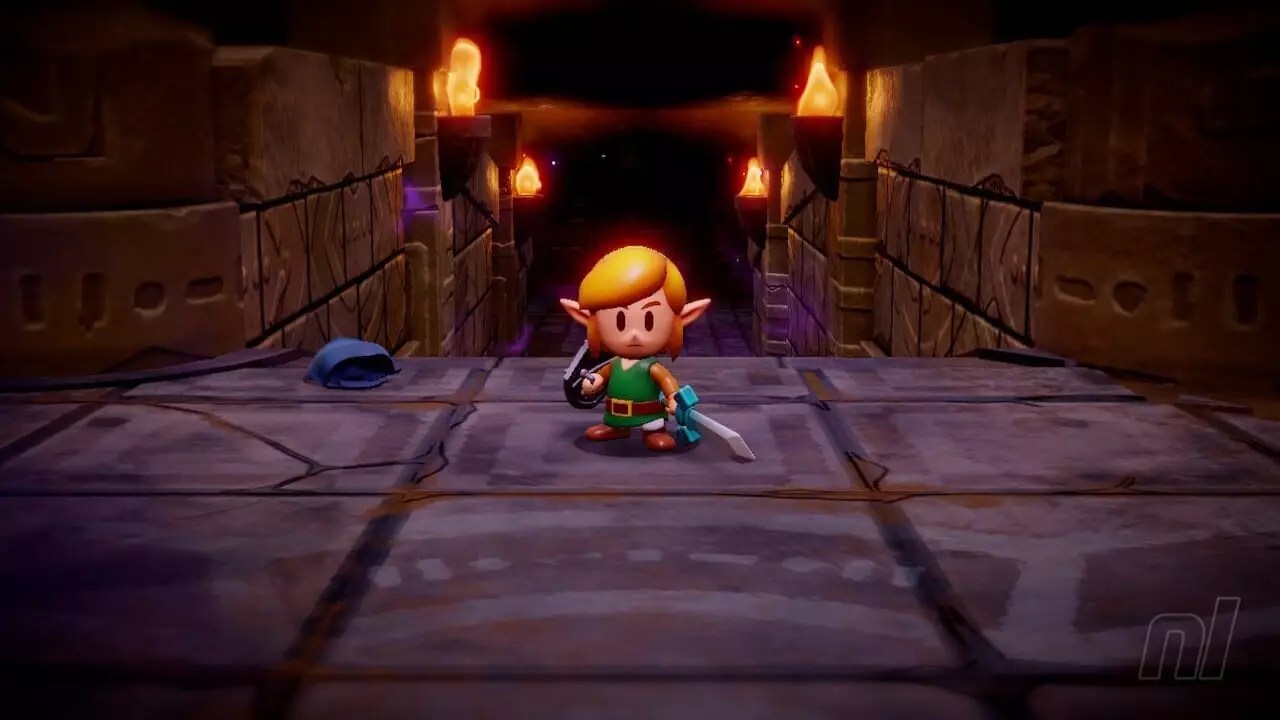The latest installment in the revered “The Legend of Zelda” franchise, titled “Echoes of Wisdom,” introduces a slew of groundbreaking features that have fans buzzing with enthusiasm. Most notably, for the first time in the series’ history, Princess Zelda takes center stage as the playable character in a mainline title. However, perhaps more intriguing is the newfound exploration of Link’s character, specifically surrounding his unusual silence throughout the game. This article delves into the implications of Link’s muteness, the narrative devices at play, and how these elements contribute to the overall storytelling in “Echoes of Wisdom.”
Traditionally, gamers have witnessed Link’s enduring habit of speaking through action rather than dialogue. His character has often been defined by grunts, gasps, and non-verbal cues, serving as a vessel for player immersion rather than a fully fleshed-out protagonist. However, in “Echoes of Wisdom,” this silence takes on a new dimension. Link’s muteness is not merely an artistic choice; it is intricately woven into the game’s lore and character development, reflecting the broader themes of loss and recovery.
As players progress through the initial stages of the game, they are introduced to Lueberry’s diary, which provides crucial backstory regarding Link’s current predicament. It is revealed that Link’s silence stems from his entrapment in mysterious rifts, leading him to lose something vital: his voice. This clever narrative device adds depth not only to Link’s character but also contextualizes his struggles within the game world. Suddenly, his inability to communicate transcends simple gameplay mechanics; it becomes a poignant reflection of his journey.
Voice carries significant weight in storytelling, often serving as a vehicle for emotional expression, character development, and plot progression. By stripping Link of his ability to speak, the developers at Nintendo and Grezzo leverage this absence to explore profound themes such as isolation and emotional disconnection. While other characters in the game, including Zelda, maintain their ability to communicate with players, Link’s silence accentuates his struggle and enhances his mystique.
The narrative suggests that other characters who have escaped the rifts similarly bear the scars of their experiences, having “lost something” vital. Link’s absence of speech can be seen as a metaphor for the alienation many feel during traumatic experiences. This exploration elevates “Echoes of Wisdom” beyond typical gameplay, urging players to contemplate the emotional ramifications of silence and the profound struggles of communication.
Player Interaction Amidst Silence
Ironically, Link’s muteness provides a unique opportunity for players to engage with the character and the world around them. With no spoken dialogue, the focus shifts towards the player’s choices and interactions. Rather than relying on dialogue trees, players must engage with the environment and other characters through observation and decision-making. This experiential learning fosters a deeper connection to the narrative, inviting players to interpret Link’s thoughts and feelings based on context and subtext.
Interestingly, this muteness does not diminish Link’s impact as a protagonist; instead, it reinforces the idea that actions often speak louder than words. The player’s journey is directed by the moments of silence that resonate strongly throughout “Echoes of Wisdom.” In this way, silence becomes a powerful form of storytelling, compelling players to engage with Link’s world in a more contemplative manner.
While the decision to mute Link may seem perplexing at first glance, it underscores a broader duality within the game. It serves to highlight the contrast between Link’s heroic demeanor and the tender vulnerability that lies beneath his stoic exterior. The developers have effectively crafted a narrative that allows for a more intimate exploration of Link’s identity, challenging perceptions of what it means to be a hero.
As fans ponder Link’s fate throughout “Echoes of Wisdom,” many are left wondering whether this philosophical approach to silence will become a defining feature of future titles in the franchise. For now, Link’s lost voice offers an engaging twist to an age-old saga, enriching the narrative and sparking discussions on the nature of communication, identity, and resilience in the face of adversity.
“Echoes of Wisdom” not only reimagines the role of Princess Zelda but also delves into the complexities of Link’s character through his muteness. This unique interpretation provides a fresh narrative lens, allowing players to experience the depth of loss and recovery in a way that transcends typical gaming experiences. As players navigate the challenges of Hyrule, they are invited to reflect on what it means to find one’s voice amidst the echoes of wisdom.


Leave a Reply